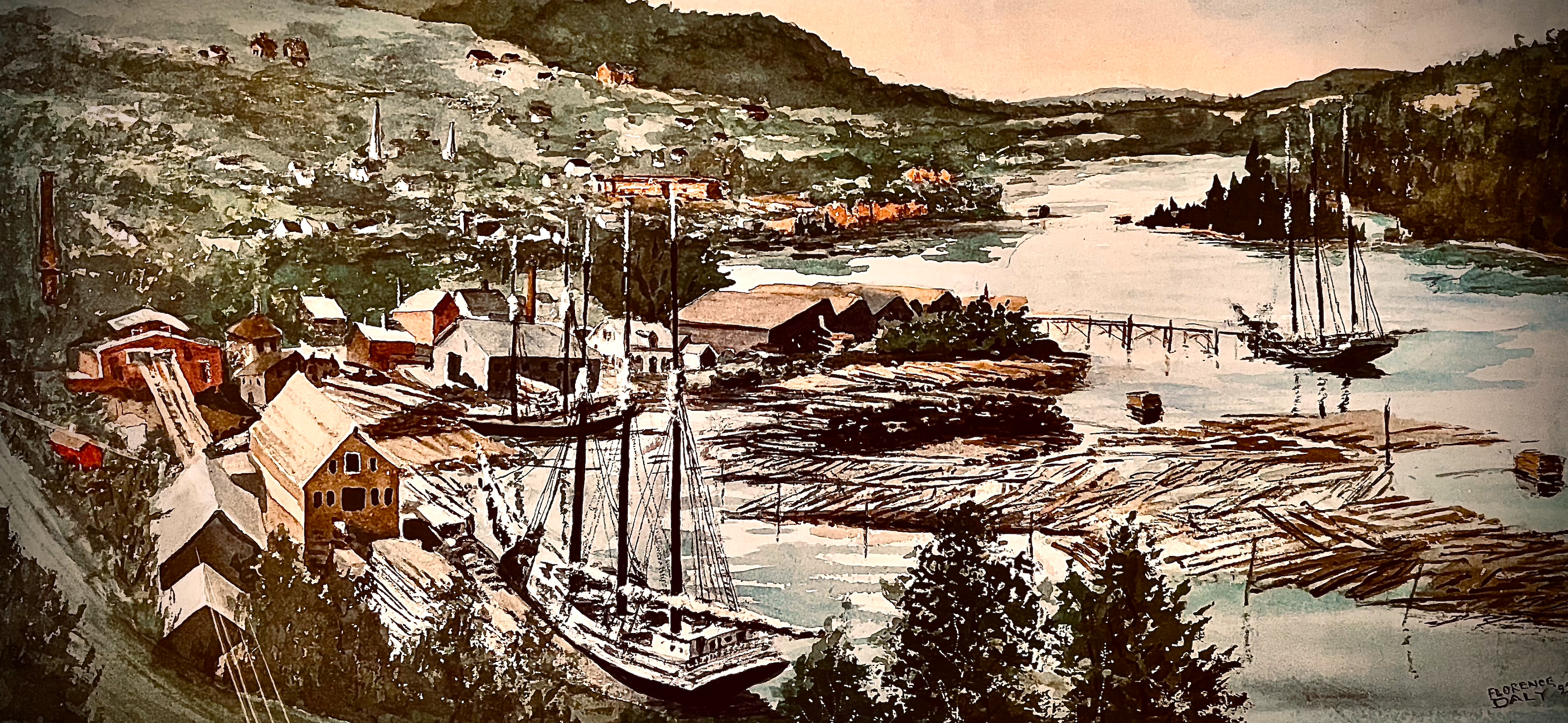
Painting by Florence Daly, Old Hallowell Day Poster (1998) depicting Hallowell’s waterfront on the Kennebec River in the late 18th/early 19th century. Ships from Hallowell and other Maine ports delivered timber to the West Indies and returned with goods, like sugar and rum, produced by enslaved labor.
VWHH is working to build a collection of primary resources that will become the foundation of our efforts to interpret and share the Vaughan family’s history as owners of enslaved labor plantations in the colonial West Indies; and as merchants involved in trading Hallowell area timber and goods in ports across the Caribbean for commodities grown and produced by enslaved people.
Slavery is wrong no matter the circumstances of the enslaved, the accomplishments of the enslavers, or the culture of acceptance that existed at the time. We cannot undo the past, and though enslaved people were never present at the Vaughan Homestead in Hallowell, VWHH can and will share our research on the Vaughan family’s participation in slavery. The family’s story will serve as a starting point for VWHH to understand and interpret the widespread role of merchants and traders from Maine and across New England in the eighteenth and nineteenth century global slave economy.
For research inquiries or questions about this ongoing work please contact our Executive Director, Kate Tremblay, katetremblay@vaughanhomestead.org.